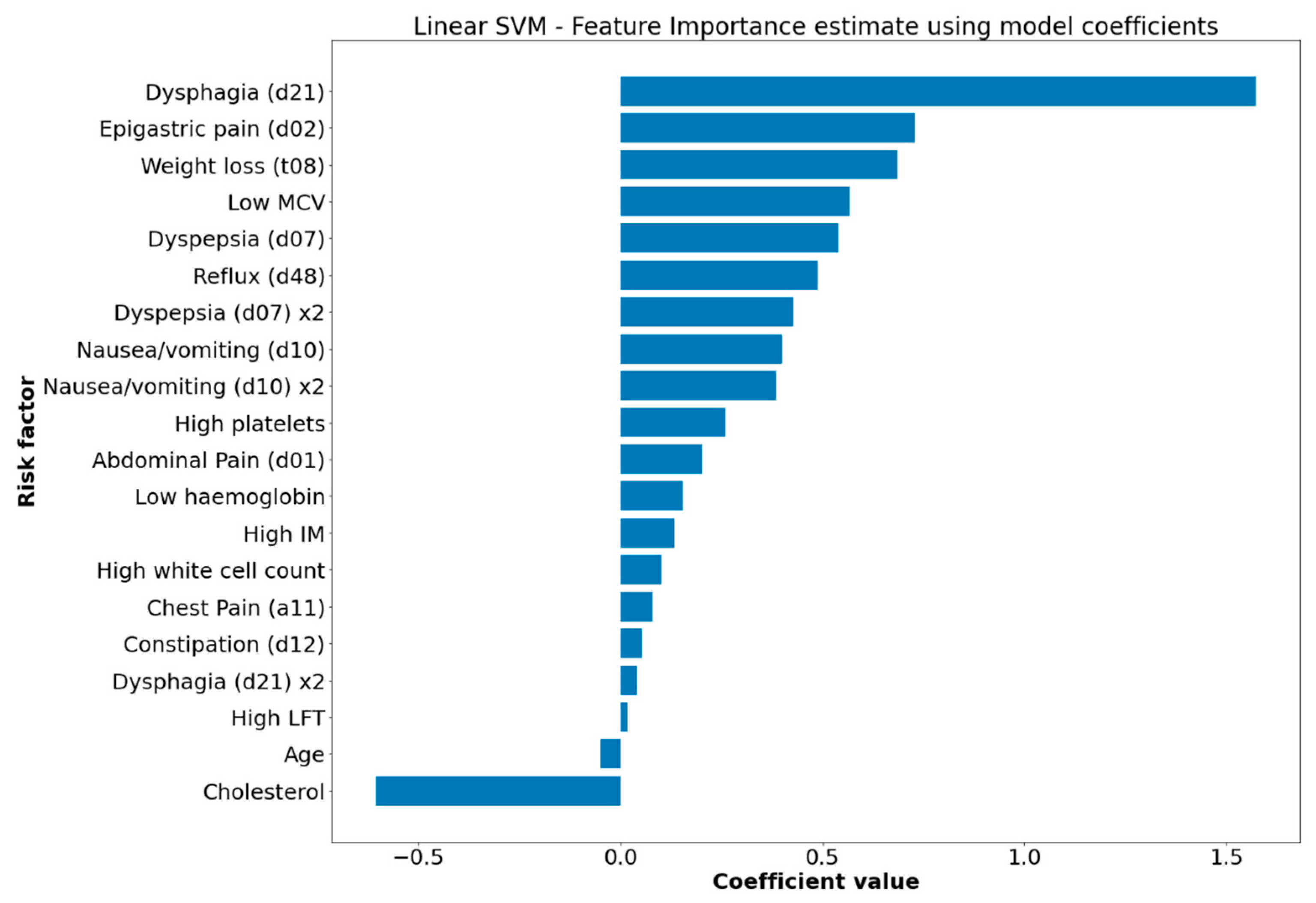Oesophago-gastric cancer is one of the commonest cancers worldwide, yet it can be particularly difficult to diagnose given that initial symptoms are often non-specific and routine screening is not available. Cancer risk-assessment tools, which calculate cancer risk based on symptoms and other risk factors present in the primary care record, can aid decisions on referrals for cancer investigations, facilitating earlier diagnosis. Diagnosing common cancers earlier could help improve survival rates. Using UK primary care electronic health record data, we compared five different machine learning techniques for probabilistic classification of cancer patients against a current widely used UK primary care cancer risk-assessment tool. The machine learning algorithms outperformed the current risk-assessment tool, with a higher overall accuracy and an ability to reasonably identify 11–25% more cancer patients. We conclude that machine-learning-based risk-assessment tools could help better identify suitable patients for further investigation and support earlier diagnosis.
 |
|---|
This is available as a full publication.